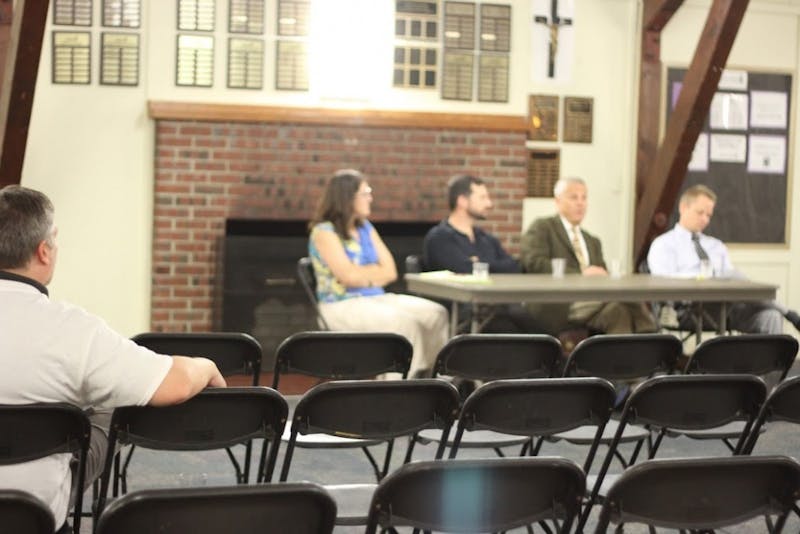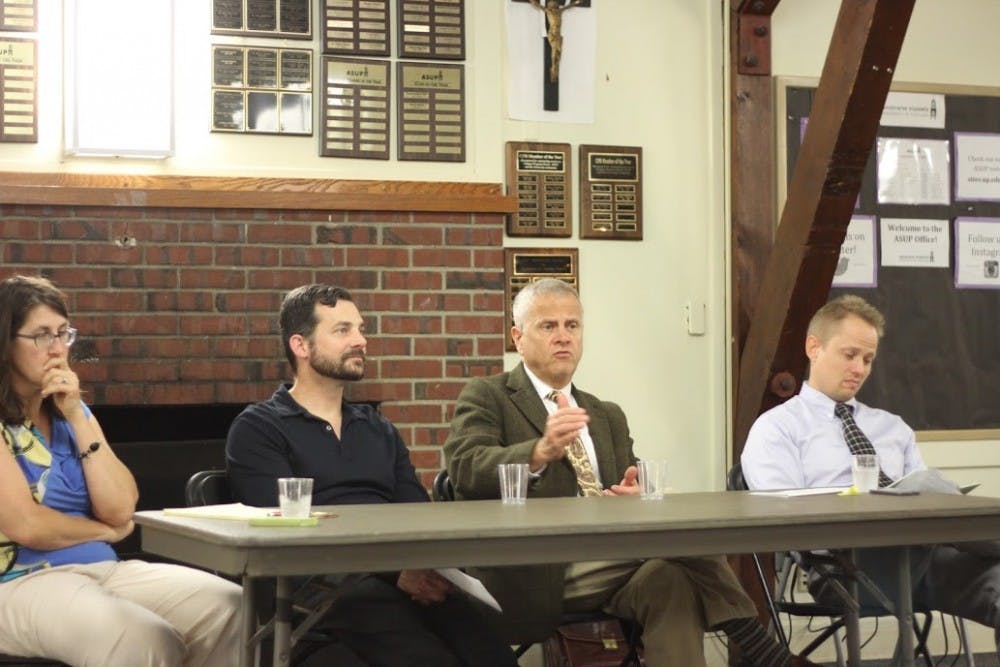Bill Curtis of the political science department welcomed students to the event on Tuesday evening in St. Mary’s with a warm, “Let’s get this party started!” after a presidential debate the night before that made few feel like partying.
Vote UP hosted a panel discussion responding to the first presidential debate between Democratic candidate Hillary Clinton and Republican candidate Donald Trump. Curtis and other political science professors, Anne Santiago, Gary Malecha and Jeffrey Meiser had the opportunity to share their thoughts on the debate as well as answer questions from audience members.
Although panelists touched on a variety of topics, three major themes ran through the entire evening: identity, policy (or lack thereof) and diversity.
Each of the panelists also focused largely on the lack of substance in the first debate. Malecha found it “rather disappointing” that there was no serious, specific mention of healthcare, national security or immigration. He felt the 90-minute debate was practically “devoid of substance,” and he learned very little about the policies or plans of either candidate.
Curtis was baffled by what he saw as a lack of concern on the part of Trump for not backing up his arguments with fact. Curtis explained that there is, in fact, information Trump could have used to improve his credibility.
“But of course,” Curtis said, “He doesn’t because he probably doesn’t know.”
All panelists emphasized the importance of identity in a presidential candidate.
“Politics is not about policy, it’s about identity,” Curtis said.
And the panelists tried to narrow down the list of important characteristics for a president, deciding on: strong, but willing to compromise and of humble origins, but not without extraordinary characteristics. Malecha pointed out the paradoxical nature of these societal expectations for a national leader.
In the debate Monday night, both Clinton and Trump spoke briefly on the topic of police brutality and America’s racial divide, which lent to plentiful conversations about diversity at the Vote UP panel. Santiago said that America is more diverse than many people seem to think, but that the nation is still struggling with a prominent “us versus them” mentality problem.

Junior Natalie Buchholz of Vote UP was more impressed by the content of the panel and discussion than she was by the attendance, saying that it was “pretty average.” Only 15 students showed up, fewer than Vote UP’s first panel last week, where organizers speculated about students’ apathy.
As a member of the Vote UP event planning committee, Buchholz said that the main goal is to “foster an interest in the democratic process” and “understand why it is important to vote.”
Vote UP will continue hosting panel discussions on the election in St. Mary’s every Tuesday at 7 p.m. through Nov. 8.








